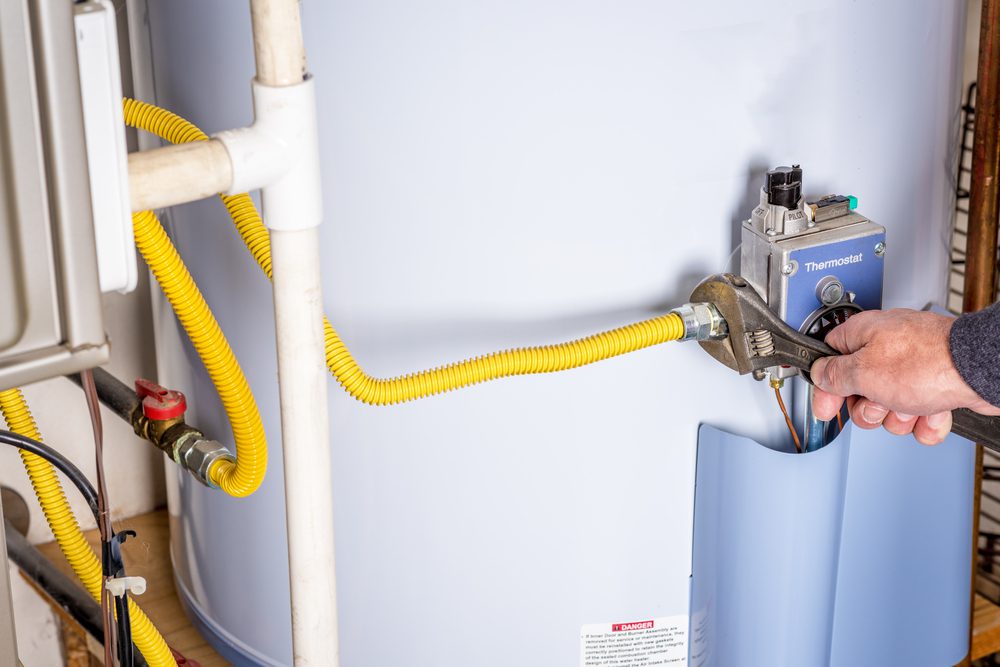Usual Water Heater Problems
Usual Water Heater Problems
Blog Article
Almost everyone has their private way of thinking when it comes to Common Problems with Your Home Water Heater.

Envision beginning your day without your regular hot shower. That currently sets a bad tone for the rest of your day.
Every house needs a dependable water heater, however just a few recognize exactly how to handle one. One simple method to maintain your water heater in top form is to check for mistakes on a regular basis and repair them as soon as they appear.
Keep in mind to shut off your water heater prior to smelling about for mistakes. These are the water heater faults you are probably to experience.
Water also hot or as well cold
Every hot water heater has a thermostat that identifies exactly how warm the water gets. If the water entering into your home is as well warm in spite of setting a practical optimum temperature, your thermostat may be faulty.
On the other hand, too cold water may be due to a stopped working thermostat, a busted circuit, or inappropriate gas flow. For instance, if you make use of a gas water heater with a busted pilot light, you would get cold water, even if the thermostat is in best problem. For electric heating systems, a blown fuse may be the culprit.
Not enough warm water
Hot water heater been available in many sizes, depending upon your warm water demands. If you run out of hot water before everyone has had a bathroom, your water heater is also little for your family size. You ought to think about installing a bigger hot water heater container or going with a tankless hot water heater, which uses up much less room and is a lot more sturdy.
Odd noises
There go to the very least five type of noises you can speak with a hot water heater, but the most typical interpretation is that it's time for the hot water heater to retire.
First off, you should be familiar with the normal sounds a water heater makes. An electric heater might sound various from a gas-powered one.
Popping or banging noises usually mean there is a piece of debris in your tanks, and also it's time to clean it out. On the other hand, whistling or hissing sounds might just be your shutoffs letting some pressure off.
Water leakages
Leaks might come from pipes, water links, valves, or in the worst-case circumstance, the storage tank itself. Over time, water will certainly wear away the container, and locate its escape. If this occurs, you require to replace your hot water heater as soon as possible.
Nonetheless, prior to your adjustment your entire storage tank, make certain that all pipes remain in location which each shutoff works completely. If you still need assistance identifying a leak, call your plumber.
Rust-colored water
Rust-colored water indicates among your hot water heater parts is corroded. Maybe the anode rod, or the tank itself. Your plumber will certainly have the ability to identify which it is.
Lukewarm water
Despite just how high you established the thermostat, you won't get any kind of hot water out of a heater well past its prime. A hot water heater's efficiency might reduce with time.
You will certainly likewise obtain lukewarm water if your pipes have a cross link. This indicates that when you activate a tap, warm water from the heating system moves in alongside routine, cold water. A cross link is easy to spot. If your warm water taps still run after closing the water heater valves, you have a cross link.
Discoloured Water
Rust is a significant root cause of dirty or discoloured water. Rust within the water tank or a falling short anode rod could trigger this discolouration. The anode pole shields the storage tank from rusting on the inside and also need to be inspected yearly. Without a pole or an appropriately operating anode rod, the warm water quickly rusts inside the container. Get in touch with a specialist water heater professional to figure out if replacing the anode rod will deal with the issue; otherwise, replace your water heater.
Final thought
Ideally, your hot water heater can last one decade prior to you need an adjustment. Nevertheless, after the 10-year mark, you may experience any of these mistakes much more routinely. Now, you should add a new hot water heater to your spending plan.
How To Troubleshoot 3 Common Water Heater Problems in Twin Cities
The Water Heater Is Leaking
A leaky cold water inlet valve A loose pipe fitting A leaky temperature and pressure relief valve A corroded anode rod A cracked tank Turn Off Your Water Heater:
Shut off your gas water heater by turning the gas valve on the unit to the “OFF” position. Shut off your electric water by switching its power off at your electrical panel. Look for a two-pole breaker labeled “water heater” and turn it to the “OFF” position. Move the ball valve connected to the water heater to be perpendicular to the piping at a 90° angle. Look for the Leak:
Depending on whether the water is coming from the tank's top or bottom, you’ll want to look for the leak in different locations.
If the leak comes from the top of the tank, carefully look for water escaping from the cold water inlet valve or loose pipe fittings. Rusted hot and cold water valves can have loose connections with the tank, with water leaking out of them.
https://mspplumbingheatingair.com/blog/how-to-troubleshoot-3-common-water-heater-problems
I was made aware of that report on Common Problems with Tank Water Heaters from an acquaintance on a different website. In case you liked our blog post plz make sure you remember to share it. Kudos for your time. Please come visit our website back soon.
High-quality, fast plumbing repairs. Report this page